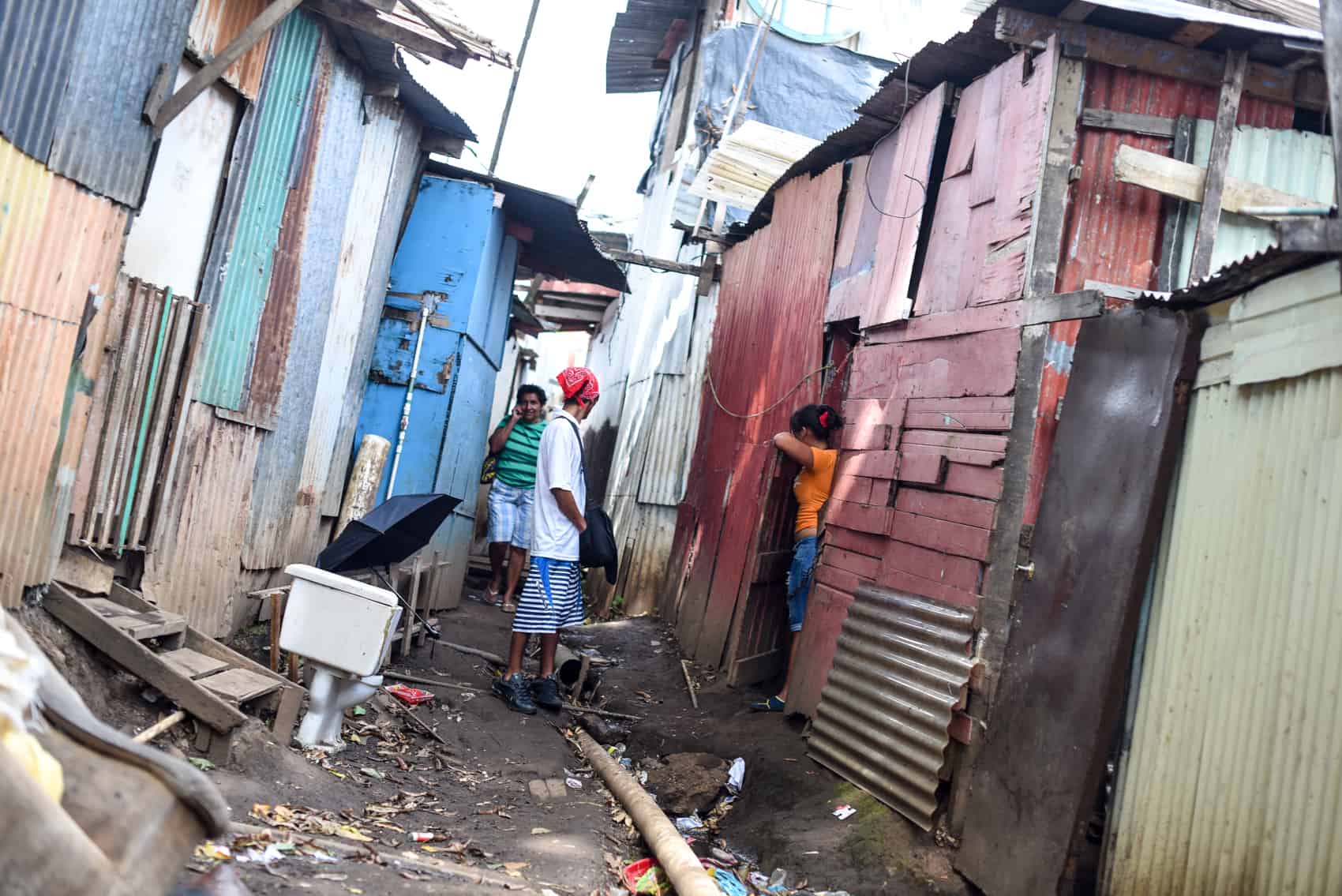
Costa Rica, a country renowned for its stunning natural beauty and vibrant culture, is also home to a complex socioeconomic landscape. While the nation boasts a high standard of living compared to many of its neighbors, poverty remains a significant issue that affects a substantial portion of the population. Understanding the nuances of poverty in Costa Rica is crucial for comprehending the broader social and economic dynamics at play within the country. By delving into the various facets of poverty in Costa Rica, we can shed light on the challenges faced by its people and explore potential avenues for progress and change. In this article, we will delve into 19 essential facts about poverty in Costa Rica, providing a comprehensive overview of this critical issue and its impact on the nation's social fabric. Join us as we embark on a journey to uncover the realities of poverty in Costa Rica and gain valuable insights into the efforts aimed at addressing this pressing concern.
Key Takeaways:
- Costa Rica’s poverty rate is around 20%, with rural areas and indigenous populations being disproportionately affected. Education, healthcare, and gender inequality are key factors that intersect with poverty in Costa Rica.
- The COVID-19 pandemic has worsened poverty in Costa Rica, highlighting the need for targeted relief measures. Sustainable agriculture, financial inclusion, and collaborative partnerships are crucial in combating poverty in the country.
Costa Rica has a poverty rate of around 20%.
Costa Rica, known for its natural beauty and biodiversity, also grapples with poverty. Approximately 20% of the population lives below the poverty line, facing challenges related to access to education, healthcare, and employment opportunities.
Rural areas in Costa Rica experience higher poverty rates.
The rural communities in Costa Rica bear a disproportionate burden of poverty, with limited access to resources and economic opportunities. This disparity highlights the need for targeted interventions to address rural poverty and uplift these marginalized areas.
Poverty affects indigenous populations in Costa Rica.
Indigenous communities in Costa Rica face heightened vulnerability to poverty, stemming from historical marginalization and limited access to essential services. Addressing the specific needs of indigenous groups is crucial in combating poverty and fostering inclusive development.
Lack of access to quality education contributes to the cycle of poverty.
A significant factor perpetuating poverty in Costa Rica is the lack of access to quality education, particularly in underserved areas. By addressing educational disparities, Costa Rica can empower its citizens to break free from the cycle of poverty.
Gender inequality intersects with poverty in Costa Rica.
Gender disparities exacerbate the impact of poverty, particularly affecting women and girls in Costa Rica. Tackling gender inequality is integral to creating pathways for economic empowerment and breaking the barriers imposed by poverty.
Informal employment is prevalent among the impoverished population.
Many individuals living in poverty in Costa Rica are engaged in informal employment, which often lacks job security and social protection. Formalizing the informal sector can enhance the livelihoods of vulnerable populations and mitigate the effects of poverty.
Access to healthcare remains a challenge for impoverished communities.
Poverty restricts access to healthcare services for many individuals in Costa Rica, underscoring the need for comprehensive healthcare reforms to ensure universal access to quality medical care, irrespective of socio-economic status.
Environmental factors contribute to poverty in Costa Rica.
Environmental degradation and natural disasters pose significant challenges to poverty alleviation efforts in Costa Rica, impacting vulnerable communities and disrupting livelihoods. Sustainable environmental management is essential in reducing the vulnerability of impoverished populations.
Social programs play a vital role in addressing poverty in Costa Rica.
The government of Costa Rica has implemented social programs aimed at reducing poverty and enhancing social protection. These initiatives encompass various sectors, including education, healthcare, and housing, to uplift disadvantaged populations.
Access to clean water and sanitation is a pressing concern for impoverished communities.
Many impoverished communities in Costa Rica lack access to clean water and adequate sanitation facilities, posing health risks and perpetuating the cycle of poverty. Addressing water and sanitation challenges is pivotal in enhancing the well-being of vulnerable populations.
Economic inequality is a significant challenge in Costa Rica.
Economic inequality compounds the impact of poverty, creating barriers to social mobility and economic inclusion. Addressing inequality through equitable economic policies is crucial in fostering a more inclusive society in Costa Rica.
Vulnerable children are disproportionately affected by poverty.
Children living in poverty face multifaceted challenges, including limited access to education, healthcare, and adequate nutrition. Prioritizing the well-being of vulnerable children is essential in breaking the intergenerational cycle of poverty.
The COVID-19 pandemic has exacerbated poverty in Costa Rica.
The socio-economic impact of the COVID-19 pandemic has intensified the challenges faced by impoverished communities in Costa Rica, underscoring the need for targeted relief measures and sustainable recovery strategies.
Access to affordable housing is a critical concern for impoverished families.
Many impoverished families in Costa Rica struggle to access affordable and adequate housing, leading to housing insecurity and inadequate living conditions. Addressing housing needs is pivotal in addressing the root causes of poverty.
Sustainable agriculture initiatives can empower impoverished rural communities.
Promoting sustainable agriculture practices and providing support to small-scale farmers can enhance food security and economic resilience within impoverished rural communities in Costa Rica.
Financial inclusion is crucial in addressing poverty.
Expanding access to financial services and promoting financial literacy can empower individuals living in poverty, enabling them to build assets and access opportunities for economic advancement.
Empowering micro-enterprises can drive poverty reduction.
Supporting micro-enterprises and small businesses owned by individuals living in poverty can foster economic empowerment and create sustainable livelihoods, contributing to poverty reduction efforts in Costa Rica.
Collaboration and partnerships are essential in combating poverty.
Effective poverty alleviation requires collaboration between government agencies, non-governmental organizations, and international partners to implement holistic strategies that address the multifaceted nature of poverty in Costa Rica.
Education and awareness are key drivers of poverty eradication.
Raising awareness about the root causes and impact of poverty, coupled with educational initiatives, can mobilize collective action and drive sustainable change in Costa Rica's efforts to eradicate poverty.
Costa Rica faces the complex challenge of addressing poverty across diverse communities, necessitating comprehensive strategies that encompass social, economic, and environmental dimensions. By prioritizing inclusive development and targeted interventions, Costa Rica can strive towards a more equitable society, where all individuals have the opportunity to thrive.
Conclusion
In conclusion, these 19 facts about poverty in Costa Rica shed light on the multifaceted challenges faced by the country. While Costa Rica has made significant strides in social and economic development, poverty remains a persistent issue that demands attention and action. Understanding the root causes, impact on various demographics, and the efforts being made to address poverty is crucial in formulating effective solutions. By addressing education, employment, healthcare, and social welfare, Costa Rica can continue its journey towards creating a more equitable society for all its citizens.
FAQs
What are the main causes of poverty in Costa Rica?The main causes of poverty in Costa Rica include limited access to education, unequal distribution of wealth, lack of job opportunities, and inadequate social welfare programs.
How is the government addressing poverty in Costa Rica?The government of Costa Rica is addressing poverty through initiatives focused on education, healthcare, social welfare, and economic development. These efforts aim to reduce inequality and provide opportunities for vulnerable populations to improve their quality of life.
Was this page helpful?
Our commitment to delivering trustworthy and engaging content is at the heart of what we do. Each fact on our site is contributed by real users like you, bringing a wealth of diverse insights and information. To ensure the highest standards of accuracy and reliability, our dedicated editors meticulously review each submission. This process guarantees that the facts we share are not only fascinating but also credible. Trust in our commitment to quality and authenticity as you explore and learn with us.


